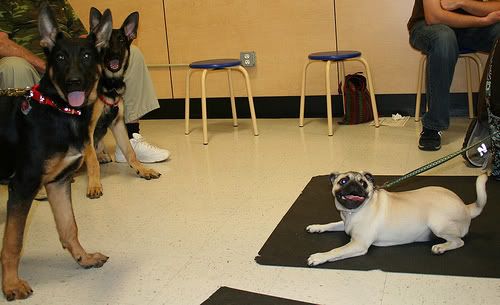Wow, this week has been filled with an insane amount of focus on what type of dog the Obama family should bring to the White House.
Not to be over shadowed, Barney (the Bush family’s terrier) bit a reporter. Gina over at the Pet Connection voiced my sentiments that and many of us would like a glimpse of real news instead of a lot of speculation and the excessive Obama dog related commentary.
First, let me say that reporter Jonathan Decker broke the rules of proper petiquette and so got bit by Barney–who is currently in the dog house–I mean White House.
Is Barney grumpy because the White House will no longer be his home or is he grumpy because Democrats will take over his residence in a short time?
Hard to say.
My big tip for the day: I’d caution reporters (and others) to be less invasive of an animal’s space in the future. Let them approach you before taking liberties to pet them.
Above: Daily Show with Jon Stewart: Road to the Dog House
Then of course the Daily Show had to jump on the band wagon with the Road to the Dog House Report.
Funny.
So, far the one poll I’ve seen indicates that people want the Obama family to get a mixed breed shelter dog.
Don’t you think it is a bit presumptious to tell the new President Elect and his family what type of dog they should get?
Besides the NY Times already reported that Malia Obama has been researching dog breeds (you go girl!) and was considering a goldendoodle.
Would you like if everyone told you what type of pet to bring into your home?
I certainly wouldn’t.
Now the world is celebrating this President Elect like has never been done before–so is this a sample of what to expect in the life of a public figure?
I can only hope the family stays grounded enough to deal with this issue and the many others that will surface.
What do you think about all this hoopla over the puppy headed to the White House?


